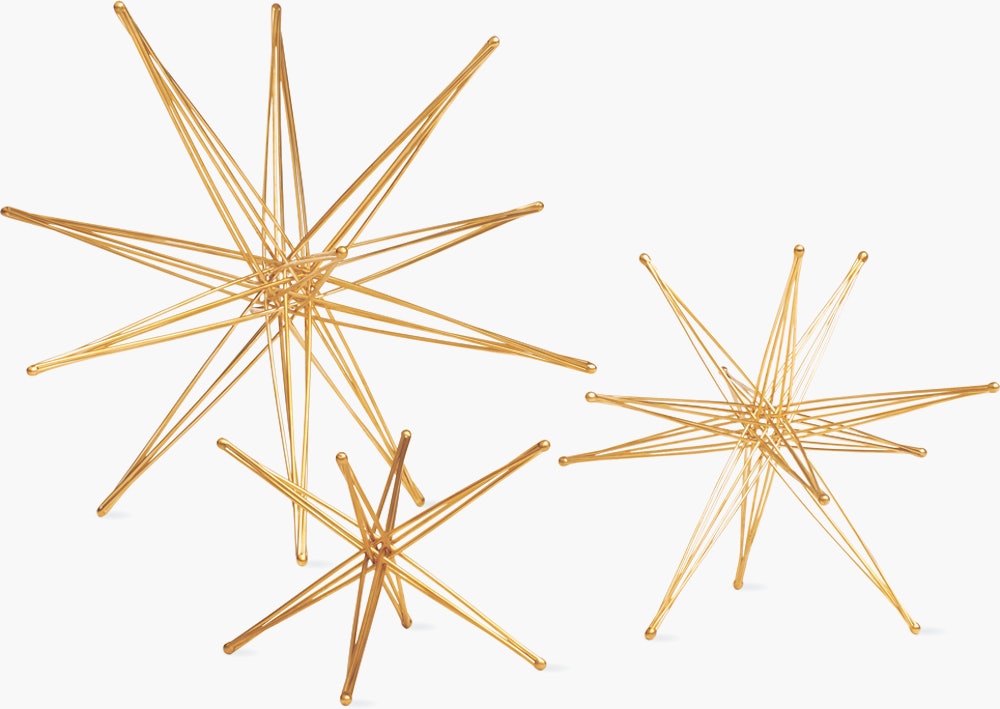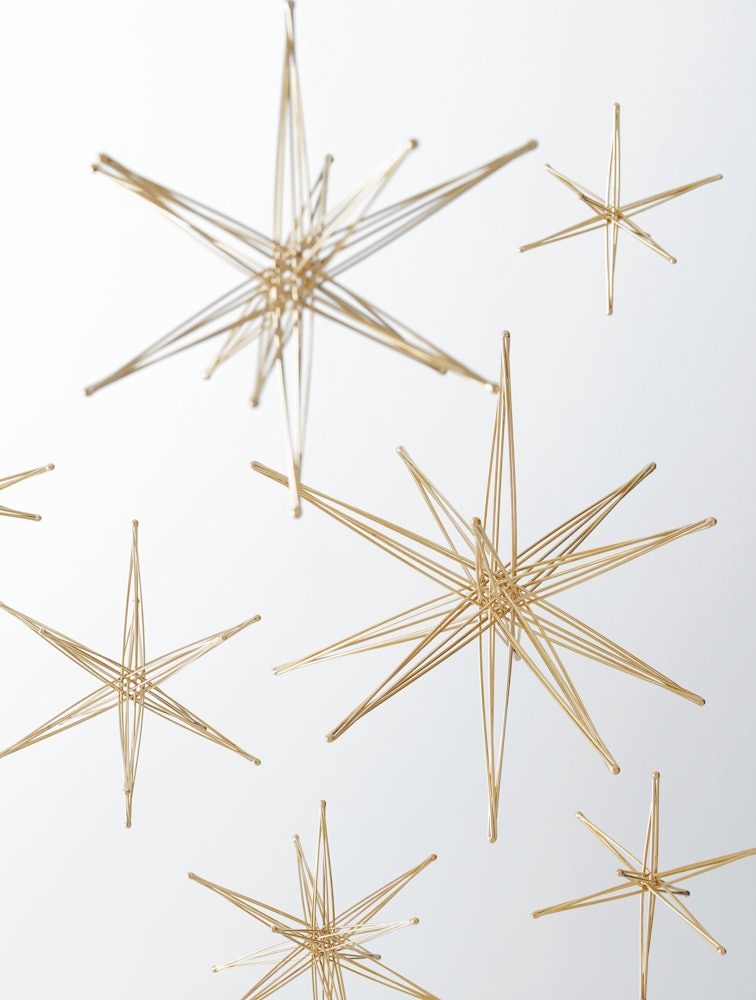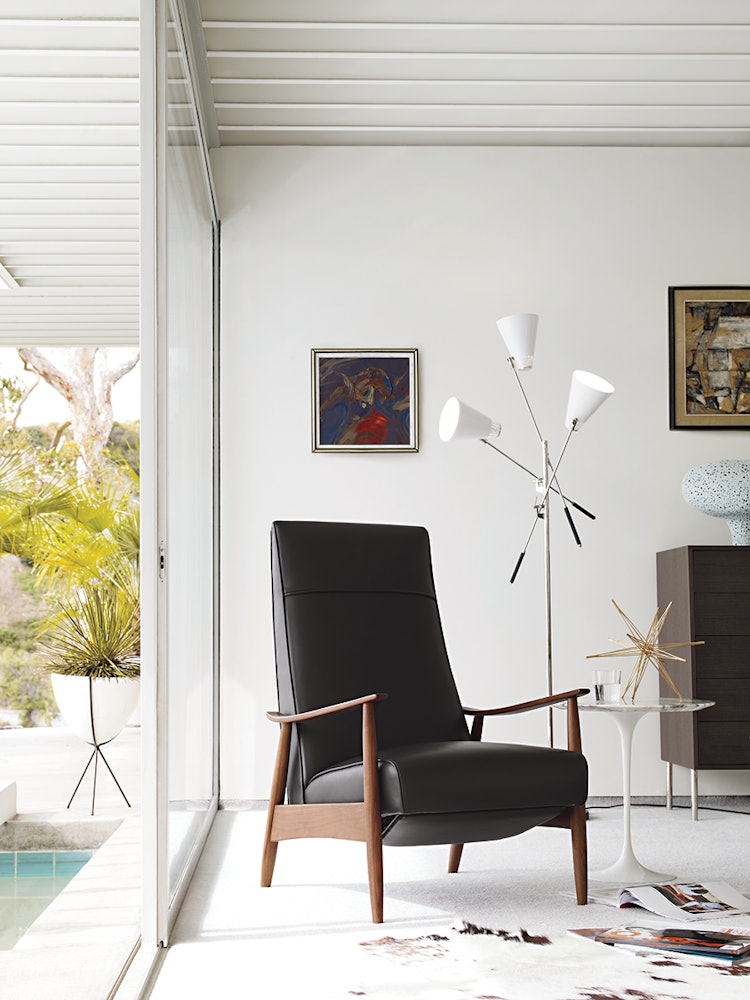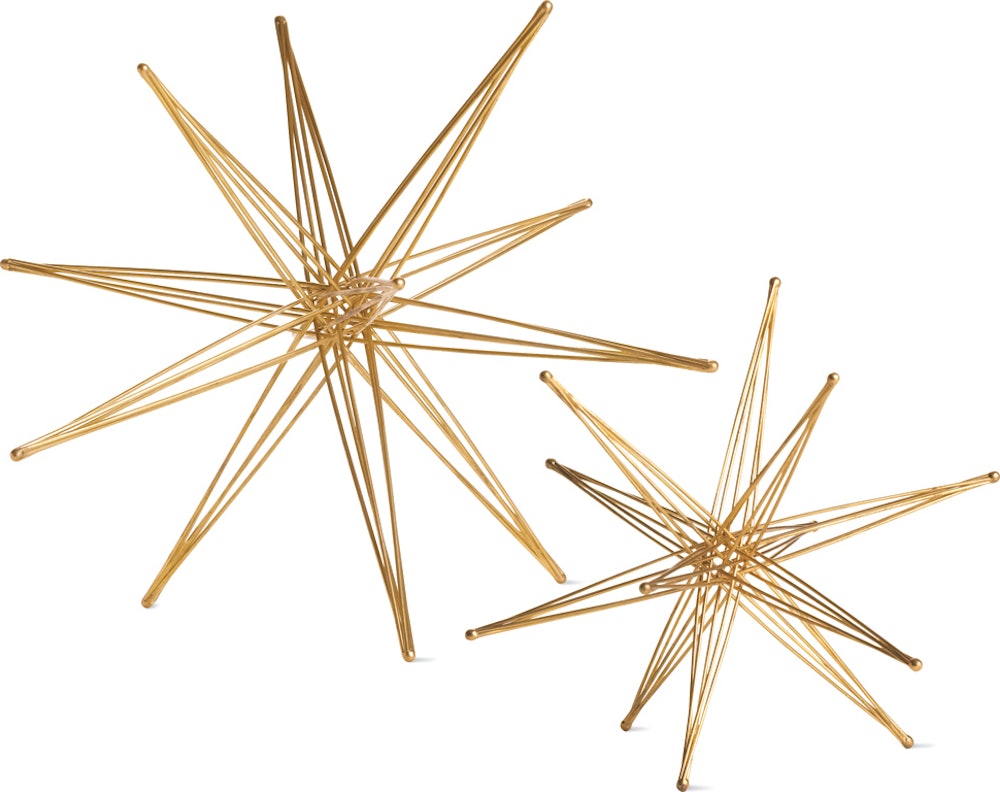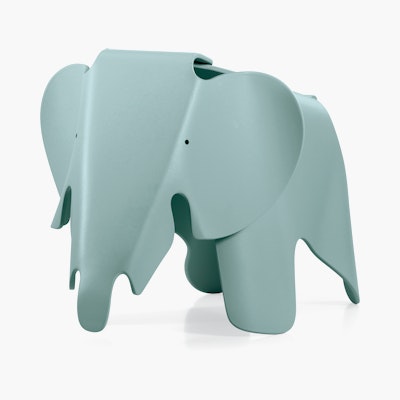Foldable Star Sculptures
Foldable Star Sculptures
Shipping + Delivery
Easy Returns
Not satisfied? Return items within 30 days. Learn More
Design Concierge
Need help designing your space? Learn more about our complimentary interior design services
Authenticity Guaranteed
This is an original, authenticated product.
Warranty
1-year warranty
Terms and conditions apply. Learn more
You may also like
Details
Set includes one of each size.
- Brand
- KOSTICKS
- General Dimensions
-
- 7" Diameter:7" DIA
- 7" Diameter:9" DIA
- 7" Diameter:14" DIA
- Assembly
- Comes fully assembled
- Warranty
-
1-year warranty
Terms and conditions apply. Learn more
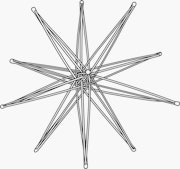
7" Diameter
- Diameter (in): 7
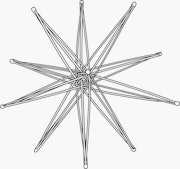
9" Diameter
- Diameter (in): 9
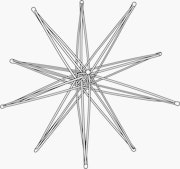
14" Diameter
- Diameter (in): 14
- Bronze
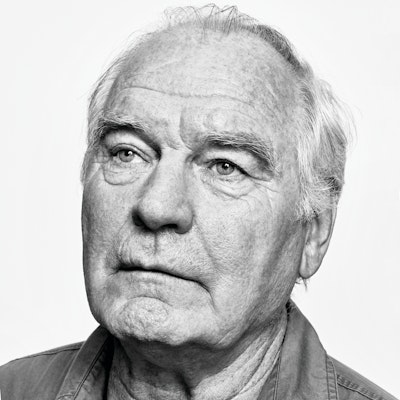
John Kostick
Inspiration struck for John Kostick when he attended a lecture by Buckminster Fuller in 1962. Kostick, a physics student at the time, realized he could illustrate and explore sophisticated mathematical concepts in a straightforward way by building models. The exploration of “mathematically interesting forms and innovative and effective ways to build them” has motivated him ever since.
More on John Kostick





